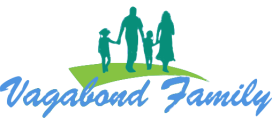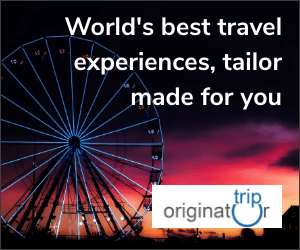Having a baby doesn’t mean your travelling life is over for good. It is probably best to stay close to home in the first three months so the baby wouldn’t catch something. After that, it is better to travel with a baby before he or she starts walking since that will keep them out of trouble and you won’t have to run after them. Although travelling will never be what is was pre-baby, it is possible and can be done if you are flexible and plan strategically.

Around the World with a Newborn
Here are some tips and tricks on how to travel smart with your baby without losing your mind.
Adjust your expectations
Your baby will require a lot of attention and soothing so you will have significantly less time for taking in the scenery or anything else you usually do. You will also have more things to carry around with you and long periods of walking might be out of the question. Babies usually attract a lot of attention and people start talking to you much more often in a friendly, positive way, which makes travelling with a baby somewhat of a different experience. The best thing you can do is be flexible without expecting to do or see much. Instead, focus on the quality of your time and appreciate each moment.

travel with a baby
Go to a family-friendly destination
The choice of your destination will certainly play a big role. If you can, choose a family-friendly resort or a beach retreat where you will have all the necessary facilities and help you need. Most of these places will have free stay policy for young kids as well as free meals, kids’ pool, playgrounds and so on. Avoid overcrowded tourist destinations, bustling cities, public transport and physically demanding areas.

Travelling with a baby
Bring food and drink supplies
It is important to have enough food and drink supplies at least for the duration of the trip, or even for the whole trip if you are travelling internationally and don’t know what kind of food you’ll be able to find at your destination. If you are travelling by plane, check the airline’s policy for bringing liquids on board or simply buy water after you go through security. If the baby is eating solids, pack some of their favourite food. Also, bring the largest bib you can find and at least one change of clothes for both yourself and the baby.
Assemble and bring a first-aid-kit
You will need to bring a first-aid-kit to help you deal with any possible minor medical problems. You should include prescription medications if needed, a thermometer, baby ibuprofen for pain and fever relief, electrolyte replacement solution for diarrhea, an antibiotic ointment to apply to cuts and scrapes, some sterile bandages for scrapes and bleeding, tweezers and a cold pack to soothe burns and bites. For protection, you should have baby insect repellent, lip protection and sunscreen. Sunscreen should be SPF 15 or higher, but you should definitely apply it to the baby’s face and hands at all times, since the harmful UV rays go through the clouds and reflect off of water and glass even when it is not sunny. You should also print out an emergency check list containing your doctor’s info and the baby’s health history.
Bring a big goody bag
You will have to keep your baby entertained for the whole duration of the trip, and babies quickly get tired of sitting and waiting around. A goody bag with an abundance of choices will save the day. You will certainly want to pack your kids’ favourite toys, as well as some new ones and some surprises packed as presents. You can bring rattles, soft animals, musical toys, plastic and wooden blocks, teething toys, and even some plastic cups and bowls if your child likes playing with them at home.
Include baby travel gear
A lot depends on how you are travelling: if you are travelling by car, you will need to bring a car seat and since you will have space, bringing along a stroller is a good idea. Alternatively, you can bring along a front-carrier for smaller babies or a baby backpack for bigger babies who can sit up. This will allow you to walk around with your hands free. It is also advisable to have a very useful baby swaddle or a baby sleeping bag for the nighttime since they keep babies comfortable in any new environment. You might want to let the baby get used to sleeping in these beforehand.
Don’t run out on the essentials
You will also need to keep your diaper bag with you at all times and have enough of everything that is essential inside. It should contain a travel-friendly changing pad, one diaper for each hour plus some extra ones, wet wipes, hand sanitizers, big plastic bags for used diapers and wipes, tissues, a nursing cover if you are breastfeeding, a diaper rash cream, a pacifier, baby hat, bib and extra clothes.
Set up a home away from home
In order to make your baby as comfortable as possible, create a space that resembles your home. Unpack as soon as you arrive to your destination: designate a corner for diaper changing so you won’t have to run around and fumble for diapers when you need to change the baby, take out all the baby food supplies and put them in another corner where they will be easily accessible, create a play corner with all the toys so the baby has space for play. Try to keep things organized and your hotel room uncluttered and you will find it much easier to function at your temporary home.

Travelling with baby
Travelling with a baby will be a new experience so you should approach it with an open mind and go with the flow. There is a good chance your baby will help you see the world with fresh eyes and experience some things from a different perspective. So gear up and hit the road!




